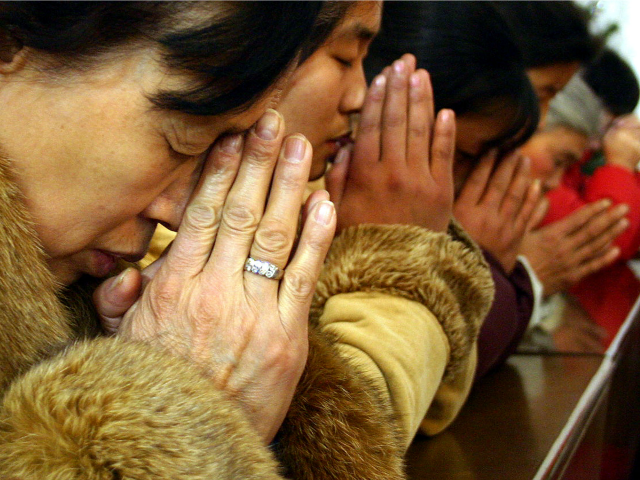In one of its more drastic moves to date, China’s ruling Communist Party has issued notices warning Christian parents not to take their children to church or they “will be dealt with severely.”
In their latest attack on Christianity, authorities have told more than a hundred Christian churches that children are now forbidden from attending church services and joining Christian groups. The latest move may respond in part to a new study from the University of Shanghai, which found that more than 60 percent of students are interested in learning more about Christianity and that young catechumens in official and underground Christian communities have been steadily increasing in number.
In August, communist officials issued “notices” to over a hundred churches in Wenzhou, within the largely Christian Zhejiang province, informing Christians that children are no longer permitted to enter any church. The notices stated that minors attempting to enter a church would be turned away at the door, even if accompanied by their parents.
Along with students, school teachers have also been banned from attending church. The Yonglin district instructed schools that “the higher authorities strictly forbid all secondary and primary school teachers, students and toddlers to join Catholic or Protestant churches.”
Chinese authorities have justified their action by alleging that church attendance and religious instruction keep young persons from developing “a correct worldview and set of values.”
“Minors receiving religious education and formation too early in churches would seriously affect the normal implementation of the education system,” the Ouhai district’s notice declared.
Authorities further warned church leaders that government inspectors will “launch open and undercover investigations” on Sundays in both state-sanctioned churches and underground communities to enforce the ban.
“There have also been attacks on Sunday school,” a pastor told the Vision Times. “It is very serious… This is very disrespectful to human rights, and we are firmly opposed… We really don’t know why authorities are doing this.”
The new norms not only forbid children from attending church service, but also prohibit minors from joining any Christian group, taking part in any religious activities or listening to sermons. The Communist authorities have also ruled that Christians may no longer run summer camps for children.
The new measures are part and parcel of China’s draconian policy on religion, and against Christianity in particular.
According to the International Religious Freedom Report (IRFP) released in August, the Chinese Communist government “physically abused, detained, arrested, tortured, sentenced to prison, or harassed adherents of both registered and unregistered religious groups” thoughout 2016.
The abuse of people of faith in their religious practice included members of unregistered Christian churches (also known as “house churches”), the State Department’s annual report added.
The IRPF noted that the Chinese Communist Party (CCP) continues to exert absolute control over religious activities in the country. “Only religious groups belonging to one of the five state-sanctioned ‘patriotic religious associations’ (Buddhist, Taoist, Muslim, Catholic, and Protestant) were permitted to register with the government and officially permitted to hold worship services,” the report stated.
This means that any religious group that does not submit to state control, such as the Roman Catholic Church or Christian “house churches,” has no official status in the country and is subject to regular sanctions and arbitrary harassment.
Since 1999, the U.S. State Department has designated China as a “Country of Particular Concern” (CPC) under the International Religious Freedom Act for having engaged in or tolerated “particularly severe violations of religious freedom.”

COMMENTS
Please let us know if you're having issues with commenting.